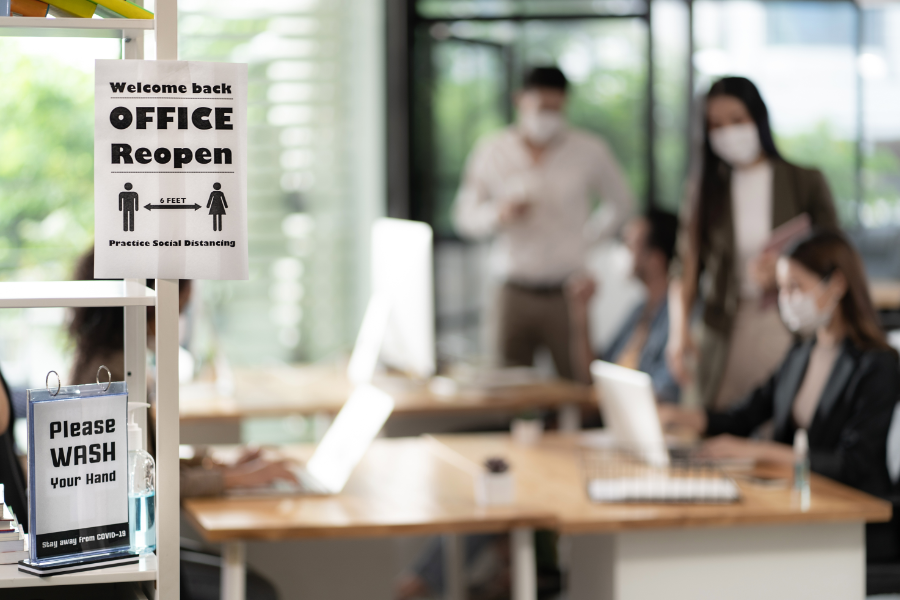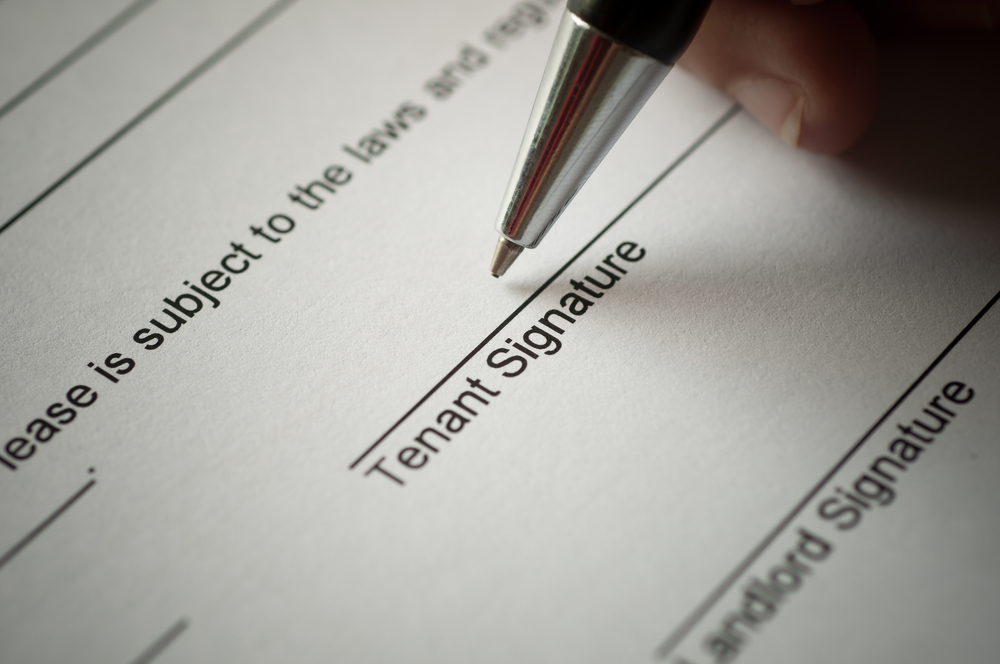
Guest blog by Gladis Gomez. Gladis holds a B.A. in Creative Writing with an
emphasis in fiction and poetry. She proudly received her education at the University of California, Riverside. Shortly after graduating, she entered the world of marketing and fell in love with copywriting. She has been happily doing it ever since, currently writing for 365 Business Tips. In her free time, she enjoys cuddling with her dog, reading a good book, and traveling.
In 2020, we faced unprecedented times due to the pandemic. Many businesses uprooted their workspace and employees out of the office into their homes. With the availability of a vaccine, the end of the pandemic is closer than ever. If you decided to not renew your lease and are planning on returning your team to the office, then it’s time to start looking for a new work building. But what kind of lease should you sign? Most importantly, how can you protect your business in the event another public health crisis occurs?
Covid’s impact on office leasing is undeniable. As many businesses proved, working from home is doable and successful. However, it’s understandable you want to return to the office. Remaining focused at home is difficult because there are a multitude of distractions. There’s a huge difference between physically exchanging ideas with your team and chatting over email. Leasing an office in 2021 means studying the fine print closer than ever before prior to signing.
First, we’ll look over a few of the most common office leases available to ensure you know your options moving forward. Secondly, we’ll discuss a few terms to negotiate with your landlord for a better post-COVID rental agreement. After all, you can never be too cautious with your business.
1. Gross/Full Service Lease
This type of lease covers all property expenses, such as property taxes, utilities, and maintenance. Even though it appears to be a good deal, the rent is typically more pricey because it’s used toward said expenses. It’s an ideal lease if you don’t want to worry about paying different bills monthly and have a fixed rent. Moreover, it’s beneficial if your business resides in areas where utilities, such as heaters and air conditioning, are frequently used. You won’t have to worry much about the rising cost of these utilities on chilly snow days or heat waves. However, be wary of any caps your landlord may put on how much they will cover for these expenses. Escalation clauses in the lease would allow landlords to temporarily increase your rent due to higher than normal utility costs.
2. Net Lease
A net lease is a flexible commercial real estate lease, meaning rent is lower, but it’s your responsibility to pay for operating expenses, such as property tax and insurance. There are four types of net leases to know:
- Single Net Lease: Single net leases makes you accountable for a portion of the property taxes and utilities on top of your base rent. On the other hand, landlords will be in charge of building expenses.
- Double Net Lease: Double net leases work in a similar way to single net leases. However, the key difference is that you are now going to pay for a fraction of the property insurance. Utilities will remain your responsibility.
- Triple Net Lease: Triple net leases are one of the most common commercial leases offered. With this type of lease, you will share costs of expenses, including property taxes, insurance, and maintenance. This will also be on top of your base rent. Although it’s the most popular, make sure it benefits you as a tenant.
- Absolute Triple Net Lease: Absolute triple net leases allocate 100% of the responsibility toward you. You will be in charge of the maintenance and care of the building as well as paying the necessary taxes, insurance, and rent. It’s beneficial for those who want to have ownership of their workspace without committing to buying. However, it’s the lease with the highest cost and risk. If there’s damage to the building or maintenance needs to happen, you’ll have to ensure it gets done. Moreover, you’ll also have to employ a cleanup crew to keep work areas clean.

3. Modified Gross Lease
Last but not least is the modified gross lease, also known as a modified net lease. It’s the ‘just right’ lease for you and your landlord because it allows room for flexibility and negotiations. With this lease, the rent will also remain fixed.
Now that we’ve covered the three major types of commercial office leases, we need to discuss what terms to look to ensure post-COVID security.
4. Building Amenities
Amenities, such as private gyms, free parking, and a break room are all ones that are used to grab your attention to sign the lease. They’re great perks to offer your employees, but if a pandemic should occur again, you need to guarantee those amenities will no longer be included in your rent. Most of the time, there are no specific regulations regarding the continued maintenance or operation of said amenities. Even if your office remains open, shared spaces like gyms could close, but you’ll have to continue paying for them.
5. Disease-Prevention Cleaning
If cleaning maintenance is included in your lease, make sure it states what it encompasses. Most cleaning companies focus on vacuuming, taking out the trash, and bathroom clean up. However, the on-going pandemic has highlighted the importance of doing much more than that. The lease should include the type of chemicals used to ensure bacteria and viruses like COVID-19 don’t cause an outbreak. Consider also discussing safety protocols in the event another pandemic occurs.

6. Flexibility for Tenants
Before signing your lease, read the fine print closely. You want to be able to exit your lease due to an emergency, including a public health crisis. Ensure a force majeure clause is included in your lease, to guarantee you can be relieved from your duties as a tenant without penalty. Although the legal jargon can be tricky, you want it to include even the most unexpected events. Additionally, a shorter lease term is also worth looking into.
The pandemic forced many business owners to reconsider their office lease. Now and long post-covid, tenants will have different needs and requirements that have to be satisfied by landlords before they can sign. COVID-19 changed how companies operate worldwide. It’s important to closely examine your options as a business owner to prevent paying rent for an empty or almost vacant workplace.
Here are a few other articles we think you will like:
4 Ways to Get a More Flexible Office Lease
7 Things to Look Out For in Your Office Lease
Getting The Best Deal on Your Next Office Lease
Subscribe to our blog for more CRE tips!!








